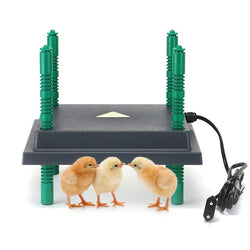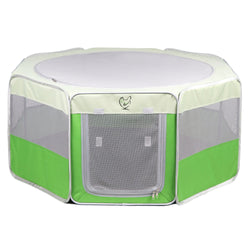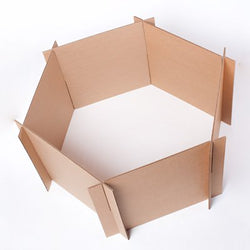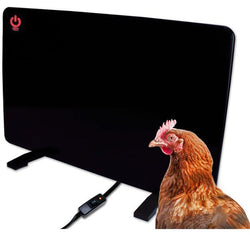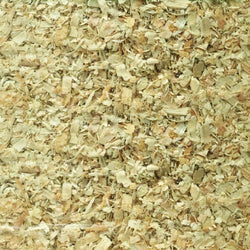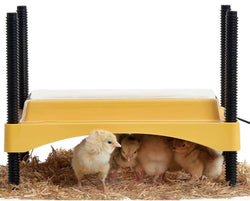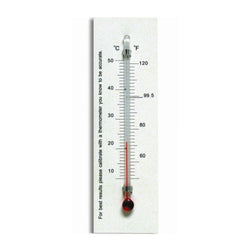Why did my chicken lay a shell-less egg?
Back to blog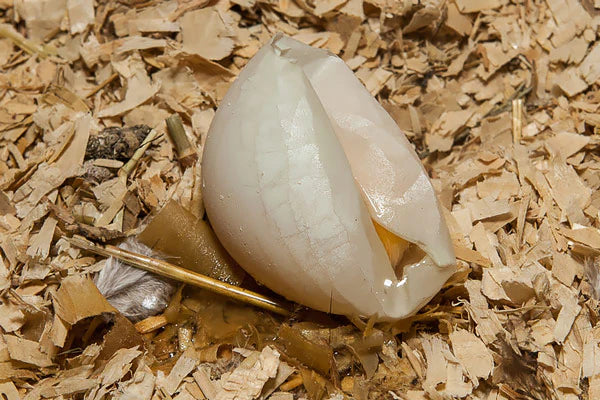
A shell-less egg is a strange sight! You might think a shell-less egg would look like a cracked egg: a mess of white and yolk soaking into nesting material. But actually, an egg without a shell is often intact. Even an egg without a shell has that soft membrane. You might even think it's a regular egg until you touch it!
Chickens need a lot of calcium to create good, hard shells, so most incidences of shell-less eggs in an adult hens are related to not having enough calcium in the diet. Young hens may lay a shell-less egg or two right as they begin to lay eggs for the first time, before their systems have "gotten into the groove" of laying. If your girls are on a proper diet of lay ration and have oyster shell free choice, they should have all the calcium they need. They also need Vitamin D and a proper balance of other vitamins so they can process the calcium. Lots of snacks or scraps can throw off the nutrient balance of their diets or give them too much salt.
Disturbances at night while they are sleeping--a predator prowling around, or a big storm, for example-- can also sometimes upset their system and cause shell-less eggs. If that is what's happening, some of the other girls' eggs may have bands or "checks" on them, as the laying process was disturbed briefly before resuming its normal course. If disturbances are the problem, when they cease, the shell problems should cease, too.
Another possibility has to do with the salt in their diet. Too much salinity can cause shell-less or thin-shelled eggs. So, sometimes if they are drinking water that is highly softened, it can contain a problem amount of salts for them.
It could also simply be a defective shell gland; it that is the case there is nothing to be done about it.
Lastly, infectious bronchitis can also cause thin shelled eggs, or eggs with no shells. Chances are good you would have noticed respiratory symptoms. If you suspect your chicken has a case of IB, you should get her to a veterinarian for a diagnosis immediately. There are some other illnesses, such as egg drop syndrome, that could cause the same thing. If you have eliminated everything else, your vet may be able to help you.
Chickens need a lot of calcium to create good, hard shells, so most incidences of shell-less eggs in an adult hens are related to not having enough calcium in the diet. Young hens may lay a shell-less egg or two right as they begin to lay eggs for the first time, before their systems have "gotten into the groove" of laying. If your girls are on a proper diet of lay ration and have oyster shell free choice, they should have all the calcium they need. They also need Vitamin D and a proper balance of other vitamins so they can process the calcium. Lots of snacks or scraps can throw off the nutrient balance of their diets or give them too much salt.
Disturbances at night while they are sleeping--a predator prowling around, or a big storm, for example-- can also sometimes upset their system and cause shell-less eggs. If that is what's happening, some of the other girls' eggs may have bands or "checks" on them, as the laying process was disturbed briefly before resuming its normal course. If disturbances are the problem, when they cease, the shell problems should cease, too.
Another possibility has to do with the salt in their diet. Too much salinity can cause shell-less or thin-shelled eggs. So, sometimes if they are drinking water that is highly softened, it can contain a problem amount of salts for them.
It could also simply be a defective shell gland; it that is the case there is nothing to be done about it.
Lastly, infectious bronchitis can also cause thin shelled eggs, or eggs with no shells. Chances are good you would have noticed respiratory symptoms. If you suspect your chicken has a case of IB, you should get her to a veterinarian for a diagnosis immediately. There are some other illnesses, such as egg drop syndrome, that could cause the same thing. If you have eliminated everything else, your vet may be able to help you.
